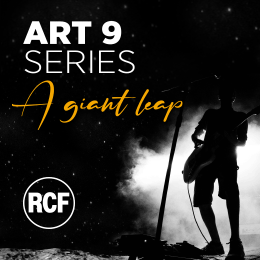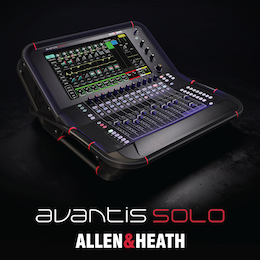Subscribe to CX E-News
By Duncan Fry
I subscribe to a number of online newsletters, full of articles on live music production, studio music production, future trends, technical advice, music distribution, streaming and more. Fascinating stuff if you’re ‘in the biz’, with a wide variety of opinions and thoughts on where things are going.
However, just in recent times I’ve noticed a common theme creeping in – namely articles on the proliferation of computer technology in the creative side of music production. As The Guardian website says,”Will we be slaves to the algorithm?”
In other words, computers writing, singing, producing, selling hit songs. The only human input comes from the person who says “We need a song for young people that captures the essence of Nirvana, Blink 182 and Rage against the Machine, 120 bpm, but sung by a girl, and we need it tomorrow!”
So that gets typed into the WeBeLyrics program, which hooks into the MelodyChordster program (incorporating CatchyRiffs), which brings up the VocalizeMe program along with the BonzoMatic drummer, Cobainerizer guitar and the ever popular One-Note-Bass plugins, preferably with the Drop D option.
While this is going on, the computer is also searching through its list of GrrlStar avatars that can be ready to ‘sing’ the song on one of the video clip templates in its database.
While doing this, the Make Appealing Bio app is searching for common back-story themes that will push every cliche button possible – “we were so poor” “if only my Nana could have seen this” “I saw something nasty in the woodshed” “I couldn’t have started this journey without: my Winnie The Pooh doll/The Lord/Old Shep/Gandalf/cocaine” (Warning! This feature may cause massive system instability if overused).
As soon as the FabboHitSong robots have trawled through the finished production and given it the OK, the Media Release is immediately sent to the computers at social media, news organisations, TV Stations and music streaming companies. In some cases, due to the monopolisation of today’s media, all this may only require one email!
The song is then uploaded to the computers at i-Tunes, Google Play Music, Microsoft store and others. People’s computers then download and pay for the song.
Computer to computer contact with no human oversight? Hmmm – what could possibly go wrong there? Quite possibly nothing at all. In fact the most likely human input would be someone adding a little extra in the form of a hidden command that automatically rockets the song to the top of the charts and deposits all royalties to someone’s own bank account!
All of the above may sound as though ol’ Dunk is being more than normally paranoid. Perhaps, although just because you’re paranoid, it doesn’t mean that someone isn’t out to get you! Required viewing for all those who mistrust computers should be the classic 1970 Sci-Fi movie Colossus: The Forbin Project. All your worst fears will be confirmed. Spoiler Alert – It’s not a happy ending!
But although the computer programs listed above are figments of my imagination, real programs like this do exist.
Way back in 2003, the New York Times published an article by Bill Werde, called ‘Could I get that song in Elvis please’. It detailed the development of a program called Vocaloid, from Yamaha, that could create a convincing human voice from a database of phonemes (the little bits that make up the sounds of words). The article likens them to audio fonts; just as you can print a letter in Helvetica or Times New Roman, so you could make a song sound like a Soul singer, opera singer, choir boy… or Elvis!
A little online checking shows it is currently used as voices for Japanese Anime movies!
Just last year (2016), software giant Adobe gave demonstrations of Project Voco, (nicknamed the ‘Photoshop-for-voice’) a voice synthesizer that could take a voice recording and insert, in the original voice, words that were never said in the original recording.
Adobe’s Zeyu Jin said “We have already revolutionised photo editing. Now it’s time for us to do the audio stuff.”
One expert warned that the technology could further undermine trust in journalism. Another said it will make it hard for lawyers, journalists and others who use digital audio as evidence. No shit!
In the QUARTZ Media newsletter, writer Shelby Hartman and drummer Greg Ellis blame the aural blandness of today’s music on the click track, which forces musicians to play strictly to the ‘click’ and stifles creativity.
Ellis says that producers these days are so used to working on the click and also using autotune that when it comes to listening to the real thing they think it sounds wrong. He is currently filming a documentary on this phenomenon, called (of course) The Click!
No word on who to blame for the vapidity of today’s lyrics, though. Perhaps a legitimate case could be made for enlisting the help of a computer with this, because scientists at Kingston University in London have designed an A.I. (Artificial Intelligence) computer that can write its own folk music, called Bot Dylan! A little science joke – don’t quit your day jobs, folks.
It was “trained” to learn the different patterns and structures that comprise a typical song by scanning through 23,000 pieces of Irish folk music. From there it could predict and generate a new tune; so much so that by May 2017 it had already ‘penned’ more than 100,000 original tunes in the folk genre. A tough gig but someone had to do it!
A Christmas photograph was scanned into a computer at the University of Toronto, which used a program to analyse the image, and then generated some Christmassy lyrics to some music it had generated at the same time, and sang them. The lyrics and music don’t have the same depth of feeling as, say, ‘Surfin’ Bird’ by the Trashmen, or even ‘Ca Plane Pour Moi’ by Plastic Bertrand, but it’s a sign of things to come!
The algorithms and technology that power all this made-up music are everywhere; from computers reading out your email to you, to telling Siri or Cortana what to do and where to go. Actually a lot of people want to tell them where to go, usually followed by throwing them against the wall!
The trickle down effect of all this technology means that for around a couple of hundred dollars you can buy, as I have, a guitar pedal that will change your guitar sound to a 12-string guitar sound, saving you the effort of trying to keep a real 12-string in tune!
And for the same price, another pedal will automatically work out what key you’re playing guitar in and sing perfect three part harmonies with you. However it’s wise to remember the old computer programming rule: garbage in, garbage out. Or, in my case: shit voice, shit harmonies!
Who owns their copyright?
Having a bit of a contrarian mindset, the following question struck me: ‘who owns the copyright to a computer generated song?’
Hmm, a good question. And surprisingly enough I’m not the first person to ask it.
A quick internet search provided an earliest asking date of 2007, when BCS, the Chartered Institute for IT in the UK asked the question, as well as the followingthe following multiple choice question: ‘Is it the music software vendor, the software user, or the software program itself?
In this case the answer provided by the presenter, David Harvey (CTO of Sibelius Software), was – the copyright belongs to the software user! Sibelius is a leading music notation program, so no surprises there!
Others take the view that despite the software, the computer itself is the actual creator of the song, and, all things being equal, is entitled to all royalties the song earns.
This is the vexing question that is bothering many members of the legal profession worldwide, because the truth is, all things are NOT equal, and there will need to be a major change in Copyright laws for it to happen.
Steve Shlackman, in the artlawjournal.com, discussing a computer generated painting in the style of Rembrandt, says,
‘The Copyright Act explicitly addresses the issue of non-humans and copyright protection:
‘503.03(a) Works-not originated by a human author.
‘In order to be entitled to copyright registration, a work must be the product of human authorship. Works produced by mechanical processes or random selection without any contribution by a human author are not registrable.’
He goes on to say that we instinctively know that non-humans shouldn’t be able to hold a copyright until we have sentient artificial intelligence, because they have no way of enforcing their rights or stop others infringing on them.
Steve is discussing art in this case, but a song is a creative work, so should we apply the same arguments or not? Are computers now becoming sentient, with the ‘capacity to feel, perceive, or experience subjectively?’ (wikipedia definition). Some people think that they are.
As with many things in life, though, this may well depend on who has the money for the best lawyers!
For example, David Slater, a photographer, had his camera stolen in Indonesia by a Macaque monkey back in 2013, The monkey began pressing buttons on the camera and accidentally took a series of selfies. When the camera was returned, Slater published the pictures and claimed their copyright. PETA (People for the Ethical Treatment of Animals) sued him on behalf of Naruto, the Macacque, who they claimed was the copyright owner!
The judge eventually knocked back the case, but it may become the first of many such lawsuits. Perhaps from ‘Lawyers for the Financial Benefit of Themselves.’
Next case, your Honour… Self-driving cars versus the General Population.
We hear an awful lot about self-driving cars these days, or Autonomous (definition: self-controlling) cars as they are currently known. Well, the car as an entity may be sold as self-controlling, but when you get right down to the nitty gritty it is a car controlled by a computer, instead of a person.
People with a vested interest in these cars – the car makers, for one, like to tell us that they are just around the corner. Which they might be, providing the car-makers, the law-makers, and most of all the insurance companies, can work out who is actually in control of the vehicle.
Under current laws this can only be a person, not a computer. ‘The computer crashed the car’ will not a valid defence! Who is going to insure these cars, who is going to be the sue-able entity that can be charged with crashing the car? Microsoft? Intel? Apple? Google? I don’t think so. So many questions, and so few answers! Most likely it will end up being the person who registered the car, since until the law changes, that can only be done by a person, not a computer.
So the registree of the car is going to end up as the person at fault, even if they have been quite legally lounging in their seat reading the paper, having had nothing to do with the car’s actual driving. How on earth are they going to get insurance to cover this? And how much will it cost?
To the best of my knowledge I haven’t seen or heard any discussion of these points, even though they go to the very heart of the self-driving concept. Self-aware computers are on their way at a great rate of knots, but there is a huge difference between having a computer write a song and having one drive you around at up to 100 kilometres an hour!
If this doesn’t have fuckup written all over it I don’t know what has! This whole can of worms has the possibility of keeping several armies of lawyers busy for a whole generation or two.
Because as always, it ends up being all about the money. Who pays, who gets paid, who doesn’t and who didn’t. A circular argument that will need far better politicians and law-makers than we currently have.
Will the computer end up owning the song it has just created (probably not) or the computer owning the new Rembrandt it has just painted (probably not, also). Or the one that has just written the ‘new’ Shakespeare / Kit Marlowe play by studying the writing style of all the other plays. Hmm – maybe! Failed English Lit students may well say that it couldn’t do a worse job!
If Cedric or Cersei the Sentient Computer finally gets to own its compositions, plus singing or playing royalties, producers fees, etc. then, as Don McLean sings, then forget Buddy Holly – THIS will truly be the day the music dies.
Perhaps sometime in the future, we’ll all commute into work in our autonomous self-driving cars, listening to songs written by software programs and performed by computers. Unless of course, we work in the music biz.
Because we won’t have a job to go to!
Postscript
A far more rational and in-depth analysis of the legal issues involved in all this can be found at the following websites:
https://artlawjournal.com/the-next-rembrandt-who-holds-the-copyright-in-computer-generated-art/
https://artlawjournal.com/peta-sues-over-monkey-selfie/
Or, just type ”who owns the copyright to a computer generated song?” into any search engine and see what pops up! Be careful though. George Orwell’s Big Brother (a.k.a.Google) might be watching you!
Subscribe
Published monthly since 1991, our famous AV industry magazine is free for download or pay for print. Subscribers also receive CX News, our free weekly email with the latest industry news and jobs.












